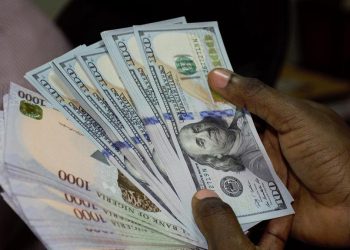Debt in Nigeria’s oil and gas industry increased by 73% during the first nine months of 2024, mainly due to the weakening of the Naira and higher interest rates, according to a report by BusinessDay. The total debt of oil and gas companies listed on the Nigerian Exchange (NGX) rose from ₦1.72 trillion at the beginning of the year to ₦2.97 trillion by the end of September 2024, showing significant financial pressure in the sector.
The seven listed companies—Aradel Holdings, Oando Plc, Seplat Energy, TotalEnergies Marketing Nigeria, Conoil, MRS Oil Nigeria, and Eterna Plc—work in various parts of the oil and gas industry, including exploration, transportation, and sales. Their financial records show that the drop in the value of the Naira and the cost of borrowing have had a big effect on their finances.

Oando Plc saw the biggest increase in debt, with its loans more than doubling from ₦818.3 billion at the start of the year to ₦1.61 trillion by mid-2024. The company took out a new loan of ₦655.5 billion during this time but also paid back ₦289.5 billion in principal and interest. By September 2024, Oando’s total loans had gone up by ₦790.7 billion, mostly because of the falling value of the Naira and higher interest rates.
Seplat Energy, another big player in the oil industry, saw its debt grow by 66%, from ₦679.7 billion at the start of the year to ₦1.13 trillion by September. Even though Seplat didn’t take out any new loans, its debt increased by ₦524.9 billion because it has a lot of loans in dollars, including a $350 million revolving credit facility.
Seplat paid back ₦151.2 billion in principal and interest over the nine months and had to pay an extra ₦75.4 billion in interest because rates went up.
The significant rise in debt within Nigeria’s oil and gas industry highlights the difficulties caused by an unstable economic situation. The weakening of the Naira and high interest rates have made financial problems worse for companies, especially those with large debts in US dollars.

















